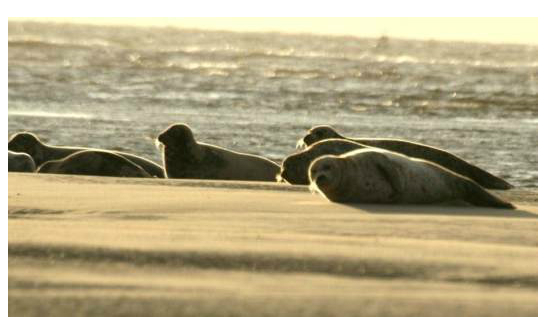Onekind Charity
Registered Charity Number:
SC041299
Edinburgh
Seal licence regime must be strengthened
Numerous press articles on seal shooting in the last two days, such as this by Rob Edwards in the Sunday Herald have covered the belated release by Scottish Government of documents showing that 180 seals were reported shot by 75 salmon farms from 2013 to January 2015.
The figures were given to the Global Alliance Against Industrial Aquaculture (GAAIA) on orders from the Scottish Information Commissioner, after the government ceased publication of annual figures on alleged public safety grounds. Up to 2013, we were allowed to see which companies and sites had reported the licensed shooting of seals. For 2014, that same information was withheld, making individual companies unaccountable to public opinion.
OneKind supported GAAIA’s appeal with a letter to the Commissioner in January this year, where we stressed the importance of monitoring claims that seals are only killed as a last resort, when all non-lethal methods have been tried and shown to have failed. That is what the Scottish Government’s own licensing regime requires.
GAAIA’s analysis of the figures showed that Scottish Sea Farms - which supplies Lochmuir-branded salmon to Marks and Spencer - shot 56 seals in the two-year period, followed by Grieg Seafood Hjaltland, which shot 36, and the Scottish Salmon Company, which shot 29.
The individual farm that killed the most seals was said to be East Voe Laxfirth in Shetland, run by Grieg Seafood. It reported shooting 20 seals between February and July 2013, and four in May, July and August 2014.
Almost half of all the seals shot by salmon farms in Scotland were killed in Shetland.
Salmon farmers and netsmen insist that they need to kill seals “as a last resort” to prevent them attacking nets and eating fish. River fisheries also shoot seals. Nonetheless, if the licence returns are accurate, there has been a reduction in the overall numbers of seals killed since 2011 when the legislation came into force. Non-lethal methods such as strengthened anti-predator nets and acoustic devices have been shown to be effective.
Some companies have made significant reductions - which shows it can be done. Overall, a total of 205 seals were killed in 2014, compared with 274 in 2013, 433 in 2012 and 459 in 2011. The numbers appear to be going in the right direction but are still far too high, suggesting that some operators apparently resort to the gun as a matter of routine.
And that infuriating “rogue seals” expression is still deployed to justify shooting. For example, according to the Sunday Herald, the Scottish Salmon Company said it applied “rigorous measures” to deter seal attacks. But still it blamed the animals: “The action highlighted was taken as a last resort under a government licence over a two year period, when rogue seals persistently interfered with the integrity of the nets,” added a company spokesman.
“Persistent interference”, you see. Not just rogues, but recidivists.
Some might say that if you place an enormous, unnatural, accessible food source in the middle of a predator’s environment (many fish farms are sited close to known seal colonies) you need to expect a bit of interference. Some might call it natural, opportunistic predation.
To be fair, the fish farmers are not the only people who blame the seals for their own fate. While OneKind is no fan of intensive farming - whether of mammals, fowl or fish - it remains the case that more than half the seals shot in Scotland last year (61%) died at netting stations or river fisheries rather than fish farms. The proportion was almost identical in 2013.
Consumers should refuse to buy fish reared or trapped at the cost of seals’ lives
OneKind campaigned for a complete ban on seal killing during the passage of the Marine (Scotland) Act 2010. As a move towards this goal, OneKind is calling for the seal licensing regime to be strengthened when it comes up for its five-year review next year. As a priority, the close season must be brought back so that the killing of pregnant and lactating females is fully and finally ruled out. The Marine Act makes specific provision for this condition to be added to licences and that power must be invoked.
The “naming and shaming” of salmon farms has prompted renewed calls for a boycott by consumers and supermarkets. OneKind agrees: anyone who buys salmon should refuse to pay for fish reared or trapped at the cost of seals' lives.
That can put real pressure on an industry preparing for the legislative review.
GAAIA has done an impressive job in extracting and presenting these figures. But we need to see the whole picture, across the sector. Marine Scotland must publish full information covering all licence holders, not only fish farms. Then we will have a better idea of what works to reduce persecution, who the most intransigent seal shooters really are, and how to stop the killing, once and for all.
While you explore the various charitable opportunities on Charity Choice, take a moment to relax and discover something exciting. Visit Vavada Casino for a thrilling break that adds a bit of excitement to your day.
